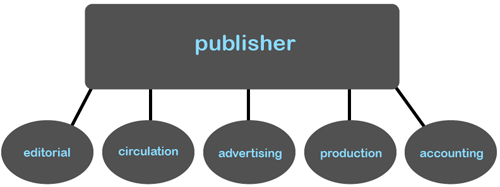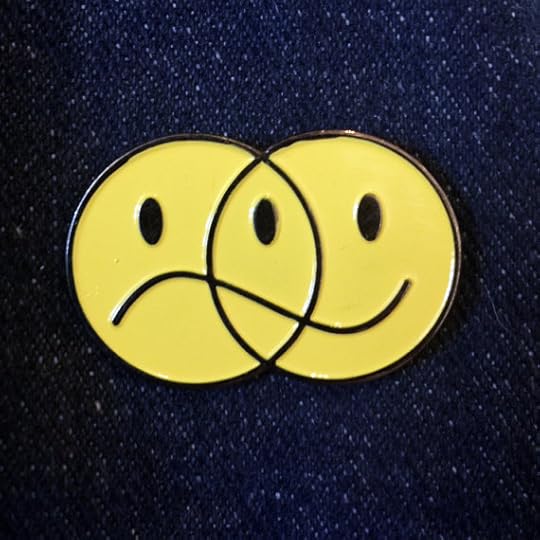Richard Harris's Blog, page 25
August 31, 2017
Quote of the Day
“The heart of a mother is a deep abyss at the bottom of which you will always find forgiveness.”
Honoré de Balzac
In “honoré” (hot diggity – dog ziggity boom – I’m funny!) of the fact that my new office is a coffee shop called Balzac’s, that the first book I ever read for a book club 13 years ago was Dai Sijie’s Balzac and the Little Chinese Seamstress (great book, beautiful cover design by the way), and that my mum is a 24/7 rock star, I dedicate this Quote of the Day to her – and to all the moms out there who practice forgiveness on a daily basis with aplomb, like it’s a freakin’ walk in the park, the easiest thing in the world to do.
Balzac was a bit of a bad-ass rebel in his day, the early 19th century. Born in the same year as Alexander Pushkin, Balzac followed a professional path not totally dissimilar to that of another towering artistic figure – Wassily Kandinsky. Both would start out in law, quickly grow bored of its banality, and move on to writing and painting, respectively. More than that, both would go on to shape their respective fields like few before or after them.
I’ll finish this post off with one more quote from Balzac that I’ve always wholeheartedly believed in:
“There is no such thing as a great talent without great will power.”


August 30, 2017
Comparison Is the Thief of Joy
I’ve been writing and commenting on some pretty shallow subjects these days, so I thought I’d up my game and post on a slightly heavier topic than HOW TO MAKE THE PERFECT PANCAKES IN JUST 10 MINUTES!
Let me begin my commentary on Stephanie Bitler (@stephiieb) and her incredibly brave and touching piece on adoption, biracialism, and, ultimately, depression called “It’s levels to this shit” by saying Korean adoptees have got to own the rights to some of the most unbelievable adoption stories. I remember interviewing adoptees for Faces of Korea all those years ago and scratching my head after each one and going, How does this kind of shitstorm happen? Ms. Bitler’s story is no different in this way.
Having recently been in a relationship with someone who suffers from depression, I’ve learned a lot about it, even if I can’t fully wrap my head around it from a firsthand perspective. Fortunately, much of (Western) society is slowly coming around and realizing that severe anxiety/depression is a “real” condition that requires the empathy of those who don’t suffer from its torturous side effects.
And it’s because of people like StephiieB and their courage to put their heart out on the table and expose their naked soul in the biting wind of harsh social critiques that others in her wake will have more strength to confront this subject both with themselves and with others.
By the way, if you like the title of my post, a line Ms. Bitler referred to as well, you can thank good ol’ Teddy Roosevelt, who apparently had something memorable to say every time he opened his piehole back in the day.
But I digress. I laud and applaud StephiieB for her soulful writing that was as down-to-earth as it was spiritually uplifting. With more discussions spurred by content like hers, we are sure to become a more open and tolerant society, especially when it comes to the subject of depression.


CCA Digital Strategy Fund

The Canada Council for the Arts is putting its money where its digital mouth is and providing $88.5 million for its digital strategy fund over the next five years. The deadline to apply this year is October 25. Per the CCA website:
In 2017-18, $10M will be provided in support to artists, artistic groups and organizations towards the development of digital initiatives. The Fund will support initiatives that aim at developing a user-centred culture of innovation, a rethinking of organizational culture, work procedures and leadership styles, and finally, the adoption and deployment of available technological solutions.
The Canada Council encourages initiatives that embody the values and principles of both the digital world and the Digital Strategy Fund, namely:
a focus on collaboration, partnership and networking;
open-mindedness, and willingness to share knowledge, results, ideas and lessons learned;
experimentation, risk-taking and iterative development.


ATTN: Deaf Artists & Artists with a Disability

If you’re a deaf artist or an artist working with a disability AND you’re a resident of Ontario, check out this link for the Ontario Arts Council’s upcoming Grant Writing Info Session, which will take place on September 7. You can attend in person or online.
The deadline for the related arts project grants is October 5.


August 29, 2017
Quote of the Day
“We are all alone, born alone, die alone, and—in spite of True Romance magazines—we shall all someday look back on our lives and see that, in spite of our company, we were alone the whole way. I do not say lonely—at least, not all the time—but essentially, and finally, alone. This is what makes your self-respect so important, and I don’t see how you can respect yourself if you must look in the hearts and minds of others for your happiness.”
Hunter S. Thompson, The Proud Highway: Saga of a Desperate Southern Gentleman, 1955-1967
I don’t now why (though I sorta/kinda do), but I woke up (i.e. raised my torso after a sleepless night) and had Hunter S. Thompson on my mind. If you’ve read War and Peace, the above quote might remind you of one of Tolstoy’s most famous passages from his opus (the “Love hinders death” passage).
My first foray into Hunter baby’s world came with Fear and Loathing in Las Vegas. To this day, it and Philip Roth’s The Great American Novel remain the two funniest books I’ve ever read. With Thompson, the man had an ability to live in and describe the world he was a part of like nobody else. While some may brush off gonzo journalism as hack writing or immature, drug-addled creativity, I have personally never read anyone like him before or since.
Another quote that came to mind this morning as I ambled around my apartment in the wee morning hours like a decrepit old man with failing bones was from the same book as above:
“Life should not be a journey to the grave with the intention of arriving safely in a pretty and well preserved body, but rather to skid in broadside in a cloud of smoke, thoroughly used up, totally worn out, and loudly proclaiming “Wow! What a Ride!”
Finally, on a more positive note (I think), I’ll close off Hunter S. Thompson’s Quote of the Day with a simple line that has more value to it than you might think at first. In its quietly pessimistic yet sobering logic, there’s actually something positive to be taken from it:
“Life has become immeasurably better since I have been forced to stop taking it seriously.”


On Drinking and Dead Parents and Life on Other Planets
I’m not even going to bother summing up this moving piece by Amy Gesenhues (@amygesenhues). If the title piques your curiosity, then do not pass go or collect $200. Just click here to read this post by Ms. Gesenhues.


August 28, 2017
Quote of the Day
“Should you shield the canyons from the windstorms you would never see the true beauty of their carvings.”
Elisabeth Kübler-Ross
There are times you read something and it just hits you in the gut with explosive force, perhaps because of the beauty of the prose, the fact that you relate to it so viscerally, or – like in cases such as this Quote of the Day – both at the same time.
Before today I wasn’t familiar with name Elisabeth Kübler-Ross, but now I realize how influential she was in her long and accomplished life.
Per Ms. Kübler-Ross’s bio on Goodreads:
Elisabeth Kübler-Ross, M.D. was a Swiss-born psychiatrist, a pioneer in Near-death studies and the author of the groundbreaking book On Death and Dying (1969), where she first discussed what is now known as the Kübler-Ross model. In this work she proposed the now famous Five Stages of Grief as a pattern of adjustment. These five stages of grief are denial, anger, bargaining, depression, and acceptance. In general, individuals experience most of these stages, though in no defined sequence, after being faced with the reality of their impending death. The five stages have since been adopted by many as applying to the survivors of a loved one’s death, as well.


Happiness Is in the Details (& Get the Hell Off Facebook)
Robert Cormack (@rbcormack) has certainly given me a lot to think about early this Monday morning through his piece entitled “Happiness Is Boring: The un-glamorized truth about our cheery, merry, joyful and beatific lives.”
He begins by referring to Shel Silverstein’s poem “The Land of Happy.”
Have you been to the land of happy,
Where everyone’s happy all day,
Where they joke and they sing
Of the happiest things,
And everything’s jolly and gay?
There’s no one unhappy in Happy
There’s laughter and smiles galore.
I have been to The Land of Happy-
What a bore
Mr. Cormack then continues his happiness odyssey by taking aim at Facebook. People post on FB, he claims, to make us envious of their travels and accomplishments and la-dee-da life. We scroll through posts looking for happiness or joy or some sort of ejaculation-like release of endorphins, oxytocin, serotonin, and dopamine. Sadly, studies show we only end up sadder after spending time on Facebook. And the longer we’re on it, the further down the rabbit hole of depression we fall. Counterproductive? You bet. Counterintuitive? Duh.
Mr. Cormack references a bunch of heavyweights throughout history, including an interesting story behind the etymology of the word “fleeting,” but there’s one particular line from his piece that I really liked:
Maybe that’s why some people never find joy. Like everything in our universe, it’s more or less a mistake. It’s like love. Love is crazy. Trying to figure it out is like trying to understand roughage. We just know it works.
I suppose the lesson here is that happiness is not the goal, it’s the journey. It’s not in the comparisons to other people’s lives or accomplishments but in the day-to-day struggle we all find ourselves in no matter how fantastic! our perfect situation may seem to others. The truth is that we’re all fighting our way through this jungle called existence, and the only people who enjoy a modicum of what can loosely be referred to as happiness are those who realize that “there” is no better than “here,” and that happiness is not the end goal. It’s in the here and now, the trenches of daily life, and the challenges we face on a minute-to-minute basis.
To quote a man far wiser than myself, I’ll refer to one L. Tolstoy, who once said, “If you want to be happy, be.”


August 27, 2017
Literary Job Openings

Per the Quill & Quire job board, here are a few job openings that have gone up over the last week or so. Click on the links to learn more about each position.
Penguin Random House Canada
Penguin Random House Canada
Annick Press


Grammar Test!
Ooh ooh ooh! Who doesn’t love a good ol’ fashion grammar test? I mean, seriously. Right?
Globe and Mail Public Editor @SylviaStead and Focus section editor @VicDwyer jointly put together this little bundle of joy, which consists of 15 questions and explanations to go alongside each answer, with the aim of giving readers the chance to see if they’re a charter member of The Globe’s good-grammar fan club.
I know this is going to be hard to believe, but I actually scored 17 out of 15, so I guess that makes me the president of this club. If you score between 5 and 10 you’re supposed to be proud of yourself. Score above 10 and you’re an unofficial member of this good-grammar fan club.
So, without further ado, click here to take the test yourself.











